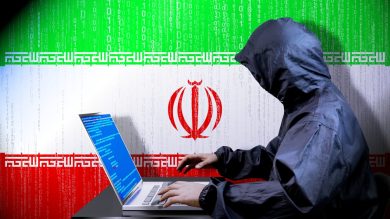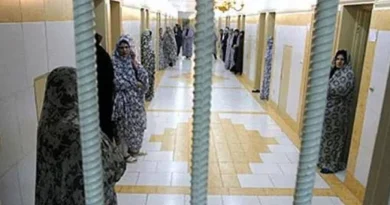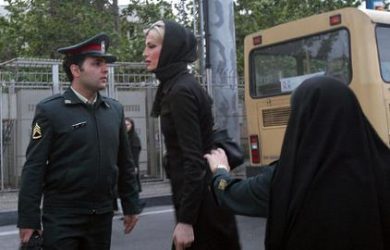The Islamic Revolutionary Guard Corps (IRGC) is one of the most influential and destabilizing forces in the Middle East, using proxy militias, covert operations, and financial support to expand Iran’s influence across the region. Instead of direct military intervention, the IRGC relies on proxy wars, fueling conflict, terrorism, and sectarian violence in countries like Lebanon, Syria, Iraq, Yemen, and beyond.
The IRGC’s Quds Force, its foreign operations unit, provides weapons, training, and financial aid to various militant groups and extremist organizations, prolonging conflicts and undermining regional security. This strategy allows Iran to project power while avoiding direct confrontation with global powers like the United States and Israel.
This report examines how the IRGC uses proxy wars to expand its influence, the impact on regional stability, and what the international community can do to counter its destabilizing activities.
1. The IRGC’s Proxy Strategy: How Iran Expands Its Influence
The IRGC’s proxy war strategy is based on:
A. Supporting and Controlling Militant Groups
• The IRGC recruits, trains, and funds armed groups to operate in Lebanon, Iraq, Syria, Yemen, and Gaza.
• These groups act as Iran’s military arms, allowing it to attack enemies without direct involvement.
• Iran provides them with advanced weapons, drones, and missile systems.
B. Weakening Rival Governments
• The IRGC undermines Sunni-majority governments and Western-backed regimes in the region.
• It sponsors coups, assassinations, and insurgencies to ensure Iran-friendly governments remain in power.
C. Creating a “Shia Crescent” of Influence
• Iran’s long-term goal is to establish a Shia-dominated corridor from Tehran to the Mediterranean.
• This strategy strengthens Iran’s regional control, giving it military and political leverage.
Through this approach, the IRGC has turned several Middle Eastern countries into battlegrounds for Iranian expansionism.
2. IRGC Proxy Groups: Where Iran Wields Influence
The IRGC funds and controls multiple militant groups across the Middle East, each playing a key role in advancing Iran’s strategic and ideological goals.
A. Hezbollah (Lebanon)
• Founded by the IRGC in 1982, Hezbollah is Iran’s most powerful proxy.
• Hezbollah has:
. Over 100,000 fighters and an arsenal of rockets and missiles.
. A parallel government in Lebanon, controlling major political and economic sectors.
. Conducted terrorist attacks in Argentina (1994), Bulgaria (2012), and Saudi Arabia (1996).
. Fought alongside Iran-backed forces in Syria, propping up Bashar al-Assad’s regime.
B. Hamas & Palestinian Islamic Jihad (Gaza & West Bank)
• The IRGC provides millions of dollars annually to Hamas and Palestinian Islamic Jihad (PIJ).
• Iran supplies them with rockets, explosives, and drone technology to attack Israel.
• These groups have launched thousands of rockets into Israeli territory, escalating regional tensions.
C. Houthis (Yemen)
• The Houthis (Ansar Allah) are Iran’s main proxy in Yemen’s civil war, fighting against Saudi-backed forces.
• The IRGC has supplied ballistic missiles and drones, which have been used to attack:
. Saudi Arabia’s oil refineries
. United Arab Emirates (UAE) airports
. Commercial shipping in the Red Sea
• The conflict has led to one of the world’s worst humanitarian crises, with millions facing famine.
D. Iraqi Shia Militias (Iraq)
• The IRGC funds Popular Mobilization Forces (PMF), Kata’ib Hezbollah, Asa’ib Ahl al-Haq, and Harakat al-Nujaba.
• These militias have:
. Attacked U.S. military bases in Iraq.
. Undermined Iraq’s government by pushing for pro-Iran policies.
. Suppressed Iraqi protesters demanding an end to Iranian influence.
E. Syria: The IRGC’s Military Footprint
• Iran has deployed thousands of IRGC troops and Shia militias to support Bashar al-Assad.
• The IRGC operates military bases in Syria, positioning advanced weapons near Israel’s borders.
• Israeli airstrikes frequently target IRGC weapons depots to prevent Iran from arming Hezbollah.
The IRGC has deeply entrenched itself across the Middle East, using these groups to wage wars on Iran’s behalf.
3. The Consequences of IRGC Proxy Wars
The IRGC’s proxy strategy has destabilized the Middle East, leading to:
A. Prolonged Conflicts and Humanitarian Crises
• Iran’s support for militias has turned civil wars into long-term conflicts.
• Countries like Yemen and Syria suffer from economic collapse, mass displacement, and war crimes.
B. Global Terrorism and Regional Escalation
• IRGC-backed groups have carried out attacks in Europe, Latin America, and the Middle East.
• Iranian proxies frequently provoke conflicts with Israel, Saudi Arabia, and the U.S..
C. Economic Instability and Security Threats
• Houthi attacks on Red Sea shipping lanes threaten global trade routes.
• Iran’s influence disrupts oil markets, affecting global energy prices.
The IRGC’s proxy wars do not just impact the Middle East—they threaten global stability.
4. How the International Community Can Counter the IRGC’s Influence
A. Fully Designating the IRGC as a Terrorist Organization
• The U.S. has already designated the IRGC as a Foreign Terrorist Organization (FTO).
• The EU, UK, and Canada must do the same to cripple IRGC funding channels.
B. Expanding Sanctions on IRGC Front Companies
• Target Iranian banks, shipping companies, and businesses used to fund proxies.
• Block Iran’s oil exports to China, which fuel IRGC military operations.
C. Strengthening Military and Intelligence Cooperation
• Increase support for countries facing IRGC aggression, including:
- Israel’s missile defense systems
- Saudi Arabia and UAE’s counterterrorism operations
- Iraq’s efforts to expel Iranian-backed militias
• Expand intelligence-sharing on IRGC smuggling routes and arms transfers.
D. Supporting Anti-IRGC Protests in Iran
• Iranians are protesting against IRGC control—the world must amplify their voices.
• Provide secure internet access (VPNs, satellite communication) to help Iranians bypass censorship.
• Increase funding for independent Persian-language media reporting on IRGC corruption.
Without global action, the IRGC will continue its campaign of violence, terrorism, and instability.
Conclusion: Stopping the IRGC’s Expansion Is a Global Priority
The IRGC’s proxy wars fuel terrorism, conflict, and instability across the Middle East. Hezbollah, Hamas, the Houthis, and Iraqi militias operate as Iran’s military arms, prolonging wars and threatening global security.
Join Our Newsletter!
Stay informed with the latest updates, news, and ways to take action in the fight for justice and global security. Sign up now to get updates delivered straight to your inbox!





